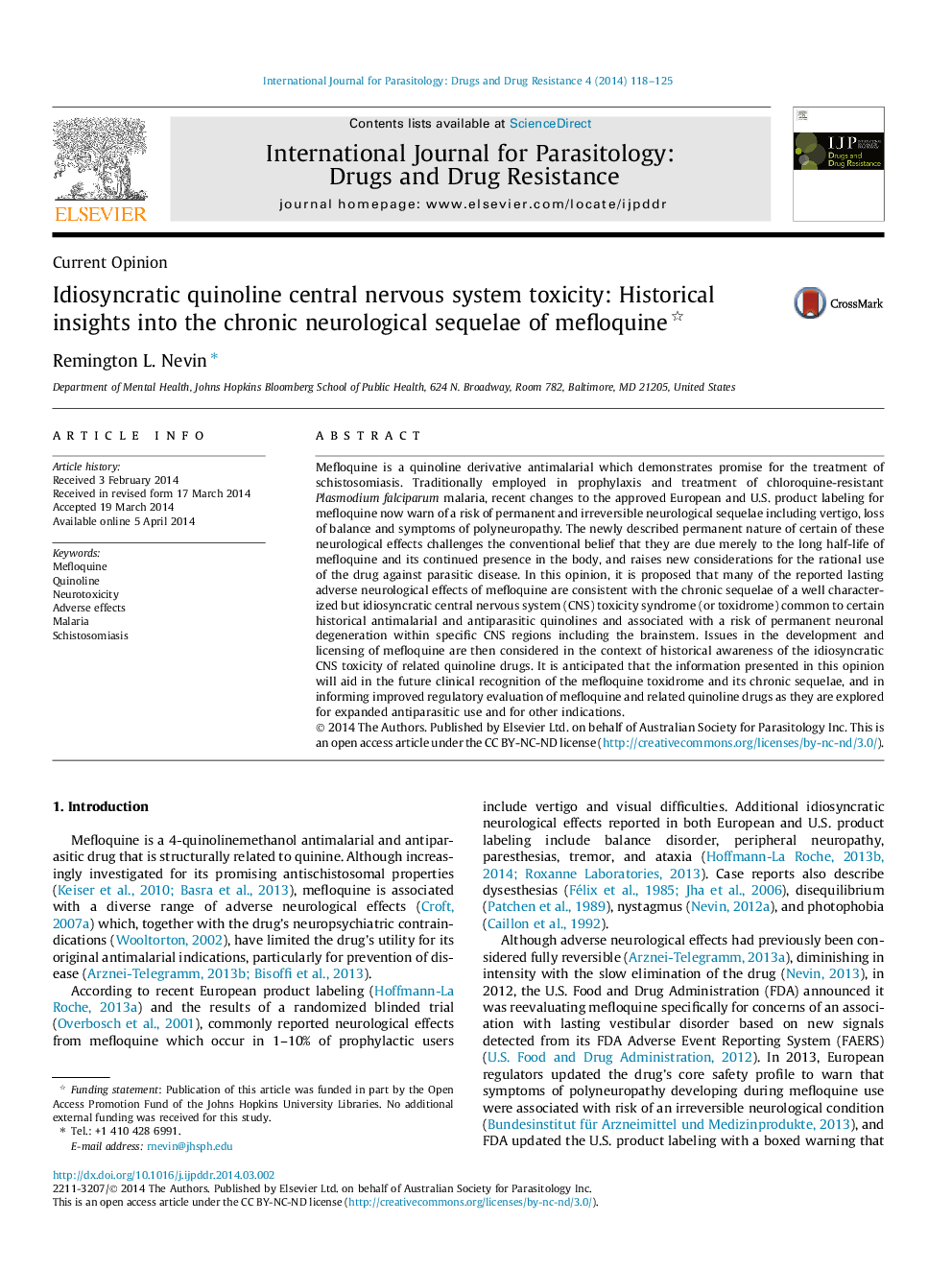| Article ID | Journal | Published Year | Pages | File Type |
|---|---|---|---|---|
| 2054667 | International Journal for Parasitology: Drugs and Drug Resistance | 2014 | 8 Pages |
•Regulators now warn adverse neurological effects from mefloquine may be irreversible.•Many neurological effects resemble those of a common quinoline CNS toxidrome.•The quinoline toxidrome is associated with a risk of CNS neuronal degeneration.•CNS neuronal degeneration may underlie some neurological effects from mefloquine.
Mefloquine is a quinoline derivative antimalarial which demonstrates promise for the treatment of schistosomiasis. Traditionally employed in prophylaxis and treatment of chloroquine-resistant Plasmodium falciparum malaria, recent changes to the approved European and U.S. product labeling for mefloquine now warn of a risk of permanent and irreversible neurological sequelae including vertigo, loss of balance and symptoms of polyneuropathy. The newly described permanent nature of certain of these neurological effects challenges the conventional belief that they are due merely to the long half-life of mefloquine and its continued presence in the body, and raises new considerations for the rational use of the drug against parasitic disease. In this opinion, it is proposed that many of the reported lasting adverse neurological effects of mefloquine are consistent with the chronic sequelae of a well characterized but idiosyncratic central nervous system (CNS) toxicity syndrome (or toxidrome) common to certain historical antimalarial and antiparasitic quinolines and associated with a risk of permanent neuronal degeneration within specific CNS regions including the brainstem. Issues in the development and licensing of mefloquine are then considered in the context of historical awareness of the idiosyncratic CNS toxicity of related quinoline drugs. It is anticipated that the information presented in this opinion will aid in the future clinical recognition of the mefloquine toxidrome and its chronic sequelae, and in informing improved regulatory evaluation of mefloquine and related quinoline drugs as they are explored for expanded antiparasitic use and for other indications.
Graphical abstractFigure optionsDownload full-size imageDownload as PowerPoint slide
